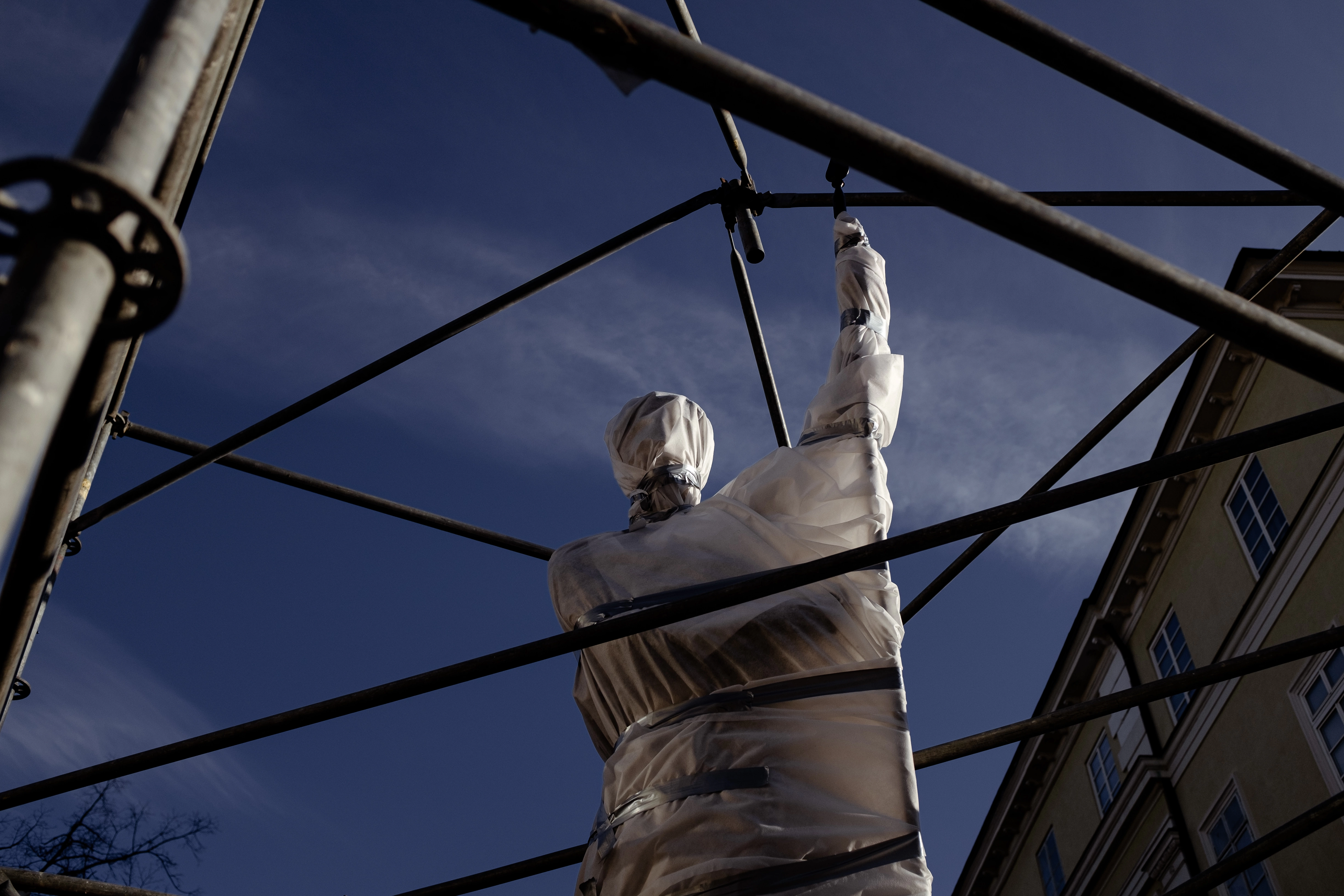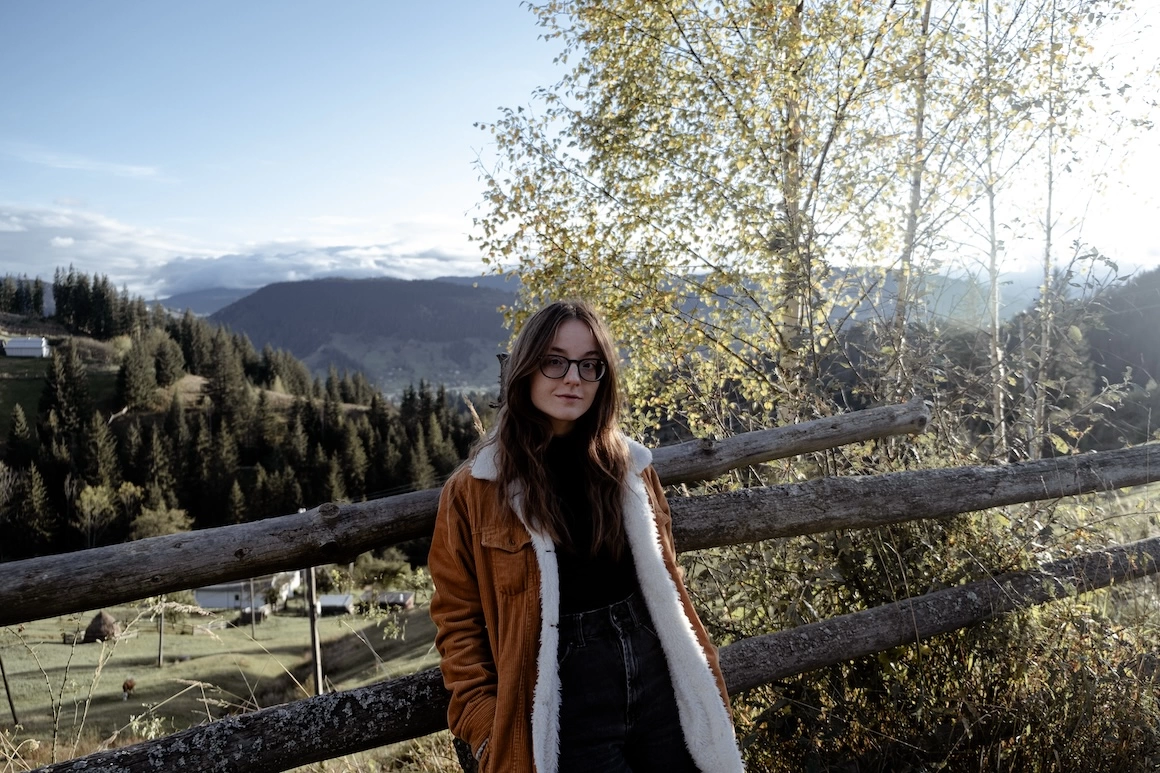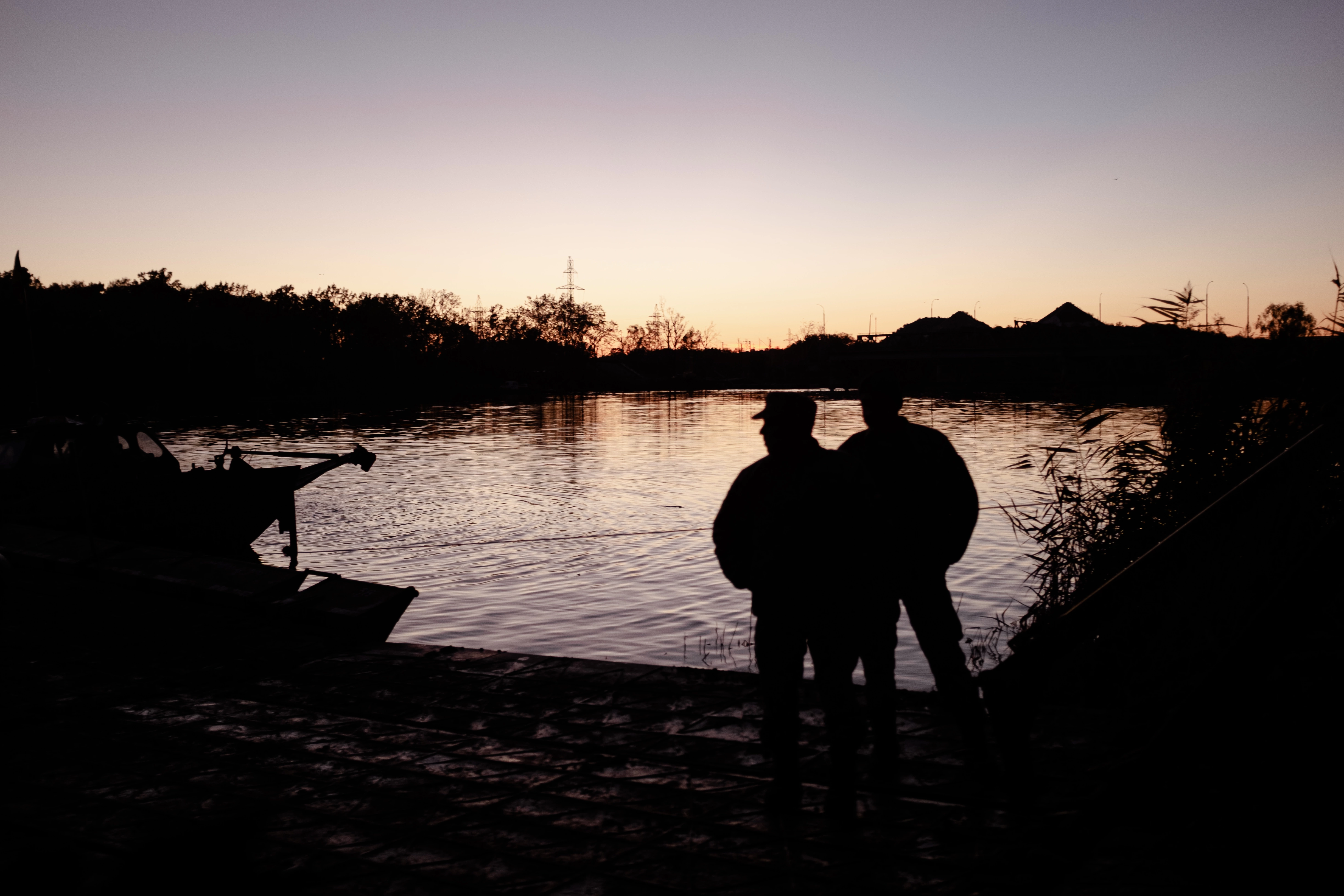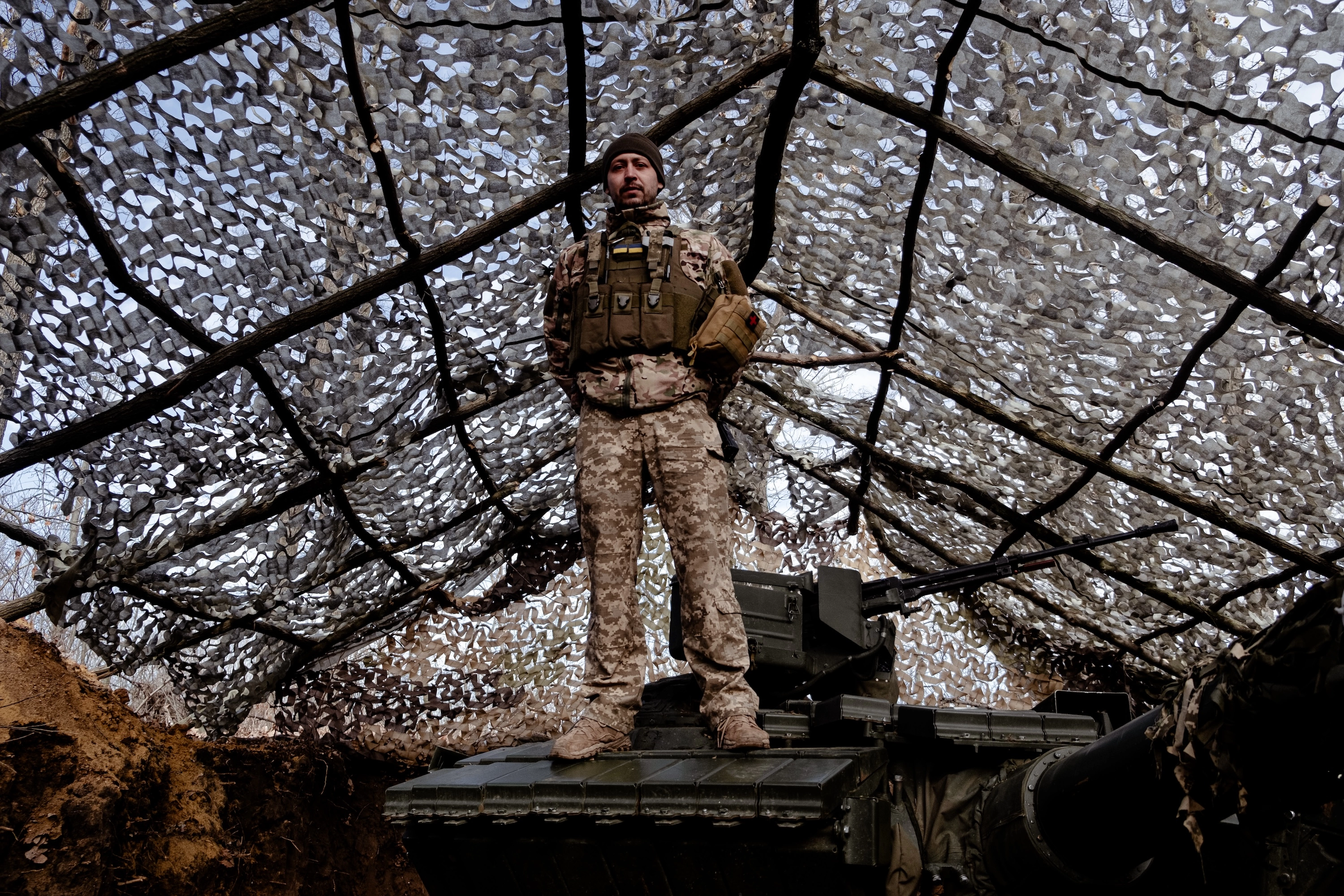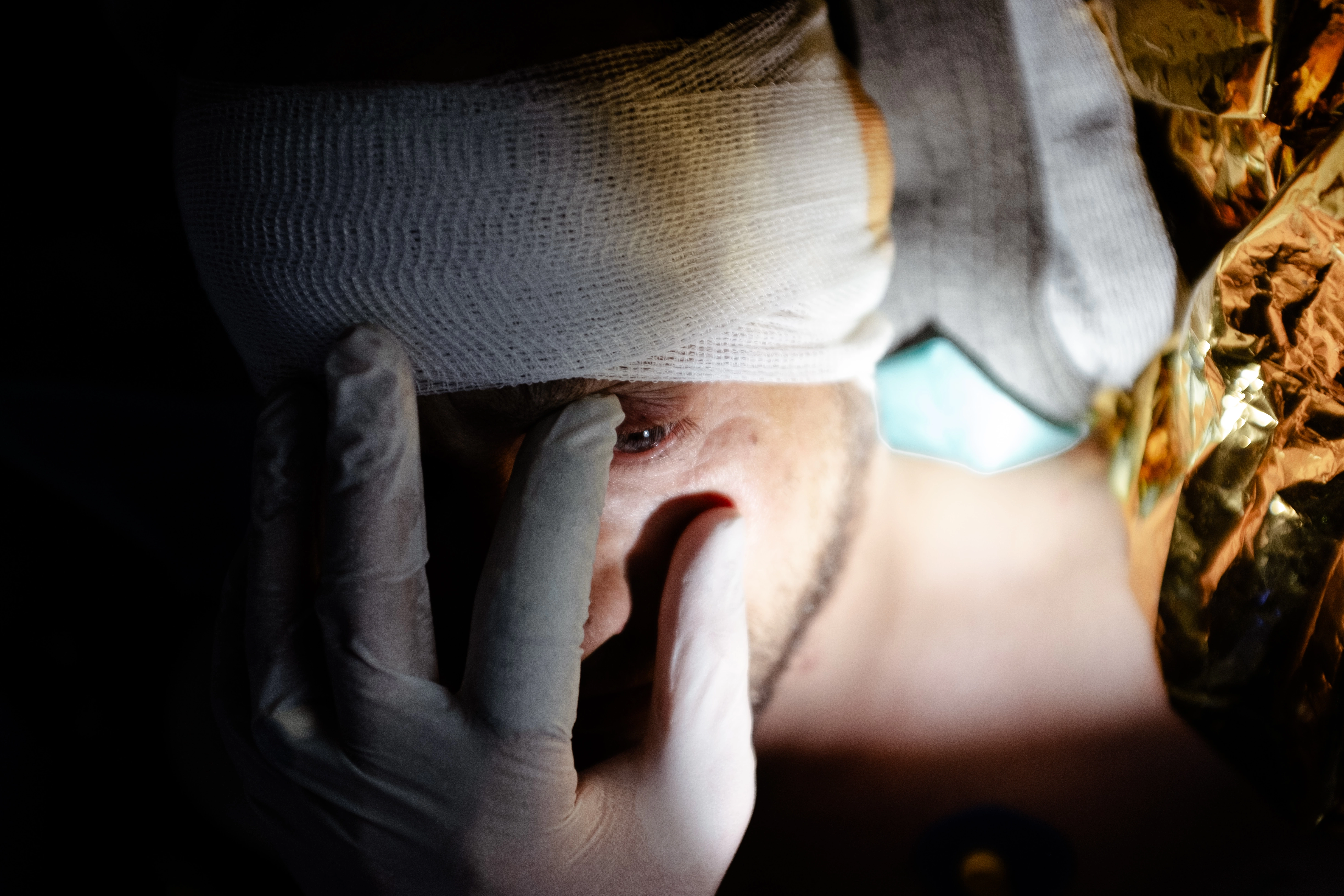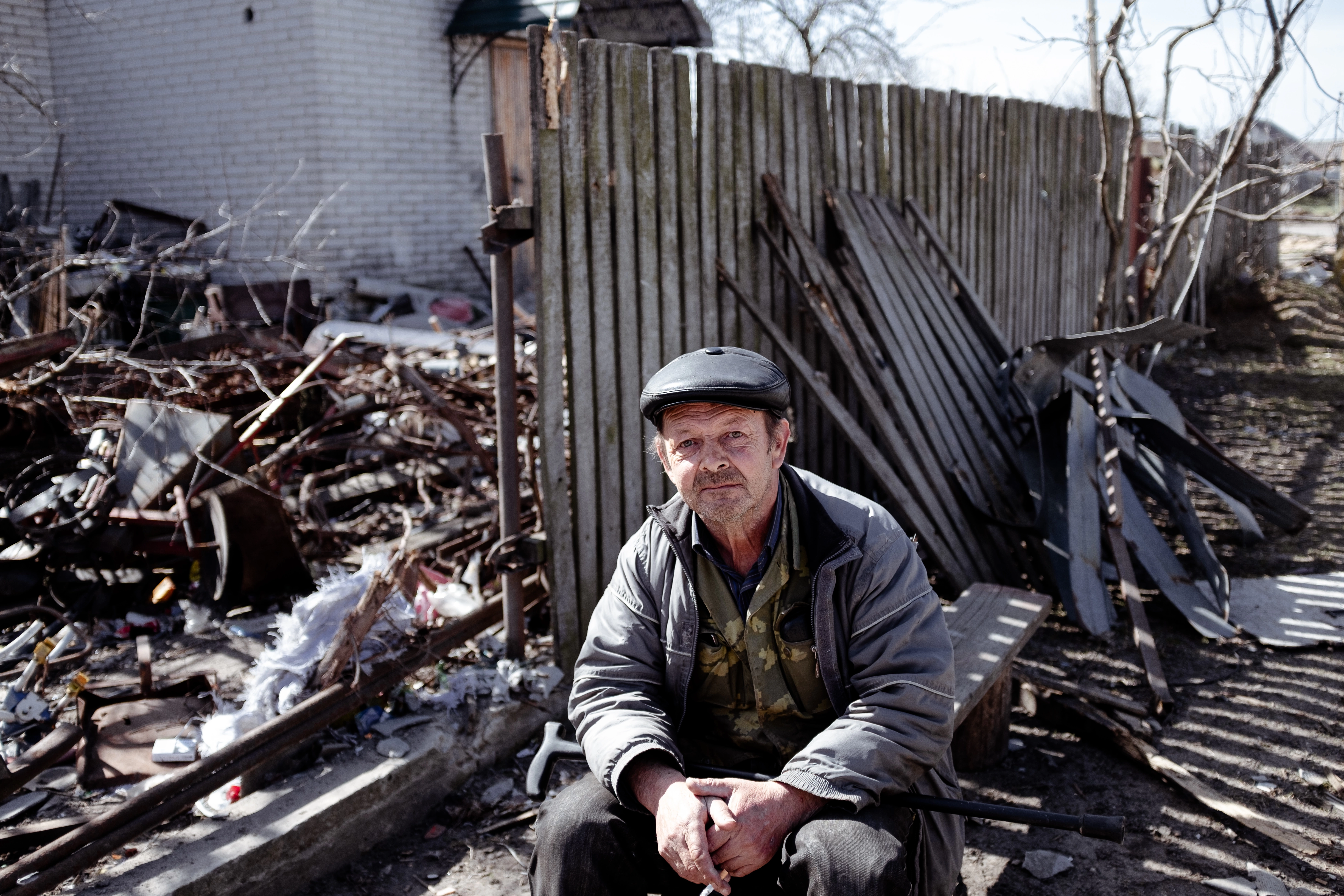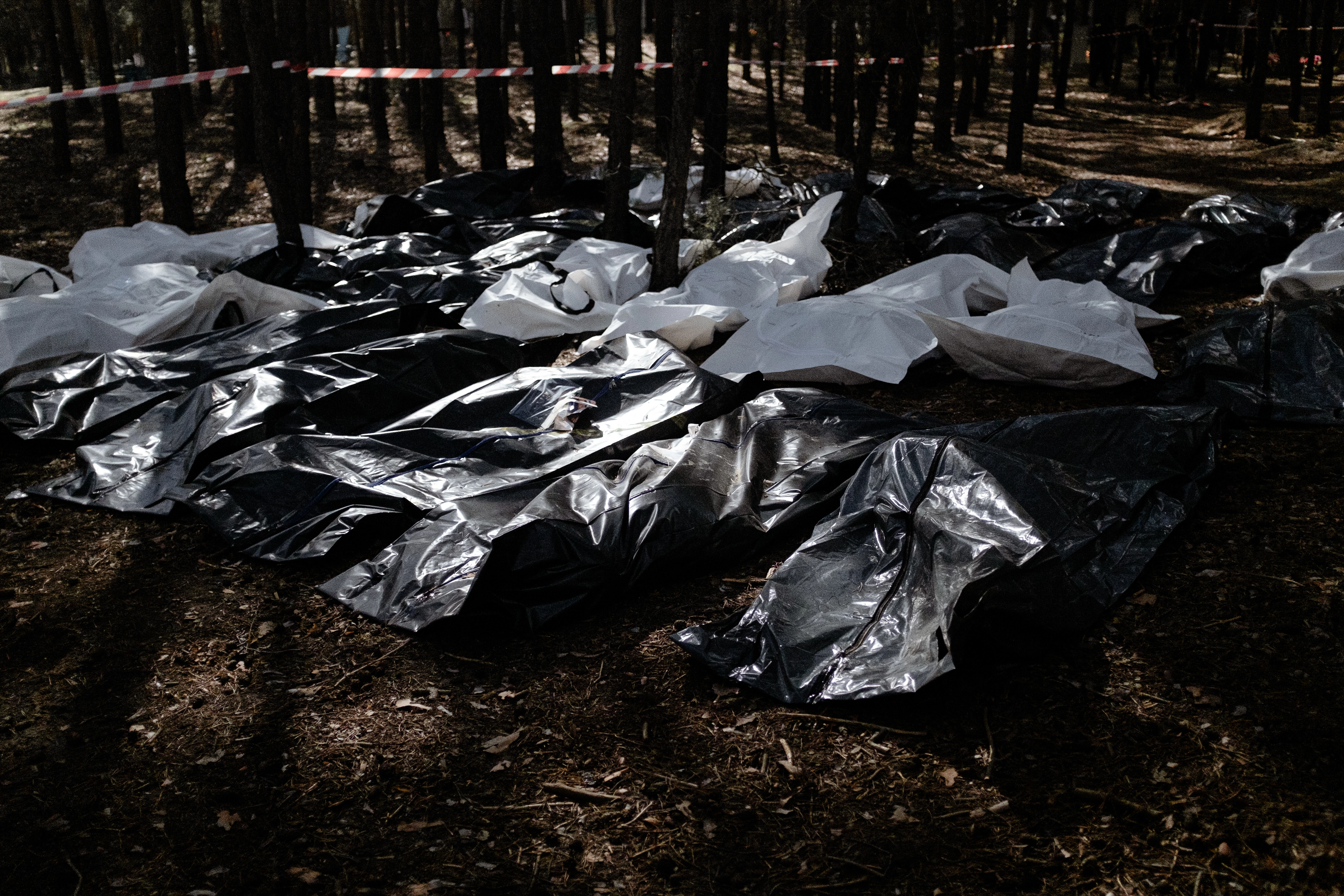I scroll through Instagram to find out when I first interacted with Larisa Kalik, a journalist born and raised in Transnistria, but who relocated to the capital of Ukraine long before the full-scale war began there. On October 18, 2022, I posted a story linking to her first text published in Scena9: an account of the destruction and corpses that the Russians left behind in Izium, a city in the Ukrainian region of Kharkiv, liberated after six months of occupation. Larisa replied with 🖤🖤🖤 – and since then, for the past year and a half, we have continued to write to each other.
Our digital conversation, teetering on the border between the personal and the professional, is a strange and telling mixture of the times we live in – I (the editor) here (in peace), she (the freelance reporter, who goes to the frontline alone or accompanied by friends) there (a single border separates us). She sends me her texts and photos, I let her know when I have comments and feedback and inform her when we publish, we talk about fallen or liberated cities in Ukraine, about vareniki and the videogame The Sims (we both like both those things), about how many people will no longer die in Avdiivka, about my own travels in Ukraine, about the text on which we worked together.
Last year, Larisa should have been in Bucharest, because her reportage from Donbas, "I am alive, I ate, I slept", won the First Prize in the Reportage category of the "Superscrieri" Awards. Instead, she was preparing to leave again for eastern Ukraine, the most disputed strip of territory in Europe. I accepted the award on her behalf and conveyed her only request to the journalists in the audience: a moment of silence for her friend Artur, who had just fallen on the front, and for others like him. Every time I look into the eyes of the people Larisa photographs, I have to ask myself: is he still alive? Or, as she asked herself in one reportage:
"How many more like him will die? Will Vlad survive until the end of the war? Will he know we won? Or will a Russian drone, missile, projectile, bomb, shrapnel, bullet reach him? Why do we have to bury people so young? (...) Will they survive? Will I live?”
Larisa Kalik was born in 1998 in Tiraspol, in the separatist republic of Transnistria, torn by Russia from the body of the Republic of Moldova. At the age of 21, she wrote a book, The Year of Youth, about the experiences of 12 young people in the Transnistrian army. Between the lines, the book talked about the shortcomings and poverty there, about the limited perspectives of young people like the conscripts and herself, about what it's like to not live in a democracy. A criminal case was opened against her and she left – first to Chișinău, then to Ukraine. The Russians found her there too, when, on February 24, 2022, they launched a total invasion of the country that Romania borders to the north.
Then, the young woman made up her mind. She would stay and work in and for Ukraine. A year after the start of the full-scale war, she wrote:
"I worked hard. As much as I could. I believed, and still believe, that journalism is one of the most important weapons in the fight against Russia."
I feel like I both know and do not know Larisa, although soon we will have been working together for a year and a half. But now she's coming to Bucharest, for FRONT, a war photojournalism exhibition, so I asked her a few questions. About her work, about courage and youth, about Transnistria and Ukraine, and, of course, about the war. Read her answers, in order to be reminded how much some people can live through and process, even though they’re only 25 years old – and how much we stand to learn from them.
A relevant selection of Larisa Kalik's photographs, together with images by Romanian photographer Vadim Ghirda, whose war photojournalism career spans over 30 years, will be on display at Rezidența9, as part of the FRONT exhibition. The exhibition is designed by Scena9 and is open from Friday, February 23, until March 24.
What was it like for you growing up in Transnistria? What should people in Romania (and beyond) know about life there?
On the topic of growing up in Transnistria, I can speak, of course, based on my experience and the experience of people around me. Therefore, my words should not be taken as objective truth.
For me, life in Transnistria was an unpleasant experience. I was born and raised there, and I managed to leave at the age of 19. Of course, many aspects of life there are the same as anywhere else in our world – a bicycle, school, delicious grapes, sisters, girlfriends, the river and the first kiss, books, sunsets, the loss of loved ones. People in Transnistria go to work, they live and laugh, they get married and raise children. But the question is that there is nothing in the future for these children.
When I began to become a teenager, many things around me raised questions. Why is the Transnistrian passport not recognized by anyone? Why can’t I go to university in a country other than Transnistria and Russia with my school certificate? Why are there armed people with the “peacemaker” symbol? Why are two armies located on the left bank - Transnistrian and Russian? Why does the Russian flag hang on administrative buildings, but not the Moldavian flag? Why is the Moldovan language taught in Cyrillic at school, and why is it not Romanian?
I knew one answer to the most important question - there is no future for me here. In truth, it is not for anyone, it’s just that few people understand it. It was important for me to wait until I graduated from school and start living for real, because before that I didn’t feel that the world belonged to me. If your “country” does not exist on the map, then you are unlikely to feel confident in anything.
In addition to the challenges of unemployment, poverty, low levels of education, and lack of human rights, growing up in Transnistria also causes an identity crisis. At school they told us that we were Pridnestrovians. But no one knows who the Pridnestrovians are. An artificial and meaningless concept that they are trying to impose on people and children. And sometimes successfully, unfortunately.
I think for people who know little about Transnistria, it is important to understand that there was also a war in Moldova, and people also died, and the responsibility for these deaths lies on the shoulders of Russia. We are now seeing the result of the “frozen conflict” on the Dniester - stagnation, deadlock and lack of understanding of how to change the situation. The war in Ukraine is not the first attack by Russia on the freedom of another people, but it is necessary to help the Ukrainian army with all our might so that this is the last war unleashed by Russia.



